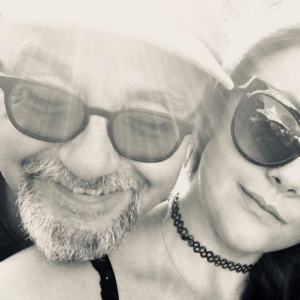FIRST NATIONS CULTURAL ACTIVISM
Jeremy Dutcher: Saving and Sharing the Spirit of Indigenous Culture CONTENTS
- INTRO: Saving and Sharing the Spirit of Indigenous Culture
- CONCERT: live performance presented on CBC Radio’s Unreserved, November, 2019
- REVIEW: National Public Radio review of debut album Wolastoqiyik Lintuwakonawa
- CONCERT: Live 23-minute NPR Tiny Desk Concert in May, 2019
- PLAYLIST: Wolastoqiyik Lintuwakonawa on YouTube.

JEREMY DUTCHER: SAVING AND SHARING THE SPIRIT OF INDIGENOUS CULTURE
Polaris prizewinner blends original compositions with archival recordings by his ancestors
Jeremy Dutcher’s moving and emotional compositions tap his passions as a musician and goals as an activist: to preserve the music and culture of his small New Brunswick Tobique First Nation. His burgeoning profile as a Canadian music star sets the stage to make that happen.
So listen up and pay attention to this guy! He’s something.
His busy tour schedule saw him perform cross-Canada and land at the November Spirit Song Festival in St John’s, Newfoundland a few weeks ago. CBC Radio One recorded the concert for its Unreserved program which focuses on indigenous culture.
Dutcher’s blend of original composition with the archival recordings featured on his award-winning first album translate well into a live show. You can listen it here.
Singing With Century-Old Indigenous Recordings
The debut recording –Wolastoqiyik Lintuwakonawa– was awarded the 2019 Juno for album of the year. But it was his 2018 Polaris Prize win that sparked broader attention. (Kurated wrote about that early in 2019 in post No. 9.)
His music blends beautiful, classically-oriented compositions with 1907 wax cylinder recordings of his Tobique ancestors – works he found while employed at the Canadian Museum of History.
Dutcher, 29, is a trained operatic tenor and identifies as two-spirit. The combination of his soaring voice singing arias in his native language with the archived music while piano and cello form the instrumental background is like nothing I’ve heard.
“I’m doing this work because there’s only about a hundred Wolastoqey speakers left,” he says on his website. “It’s crucial for us to make sure that we’re using our language and passing it on to the next generation. If you lose the language, you’re not just losing words; you’re losing an entire way of seeing and experiencing the world from a distinctly indigenous perspective.” – Jeremy Dutcher
DUTCHER’S TINY DESK CONCERT
This 23-minute show offers a quick and deep look at Dutcher’s work. Tune in at 13.20 hear to hear him explain his approach and set up a really good sing along!

WOLASTOQIVIK LINTUWAKONAWA
It is about raising the voices of those who have been silenced through history and opening our ears to listen
by Talia Schlanger / (WXPN’s World Cafe)
You have never heard anything like Wolastoqiyik Lintuwakonawa. In fact, there are many people who tried to make sure you never would. Jeremy Dutcher is a member of the Tobique First Nation in New Brunswick, and one of about 100 people who can still fluently speak the traditional language of Wolastoq. Its severe endangerment can be traced back to the attempted erasure of indigenous identity that darkens Canada’s cultural history. Many children, including Dutcher’s own mother, used to face physical punishment if they spoke indigenous languages in church-run schools. Dutcher’s album serves as an intervention in the ripples of shame and fear that have, over time, buried tradition. Under the guidance of Maggie Paul, one of his Nation’s song-carriers, Dutcher took century-old wax cylinder recordings in Wolastoq from the archives at the Canadian Museum of History, and transformed them into a masterpiece of musical imagination, blending his own voice with the voices of his ancestors.
Of course, we do not first fall in love with albums because they unearth history. We fall in love with albums because they unearth something in us. Wolastoqiyik Lintuwakonawa stirs something in the listener that cannot be ignored. It’s the sheer beauty of the sound of the Wolastoq language, whose vowels Dutcher stretches across continents with his soaring voice and whose words you do not have to understand to feel their depth. And it’s the knowledge that true reconciliation is about more than land and money, it is about identity and therefore about art. It is about raising the voices of those who have been silenced through history and opening our ears to listen.
Stay tuned,

26 December 2019





